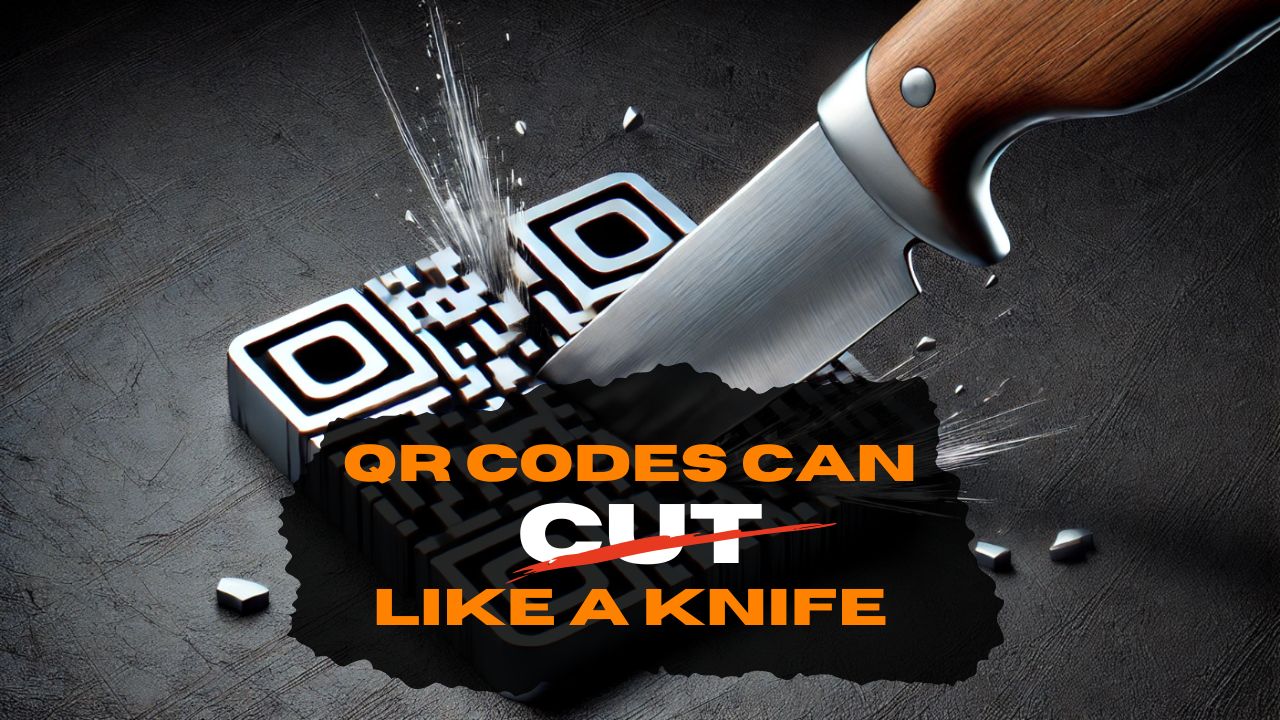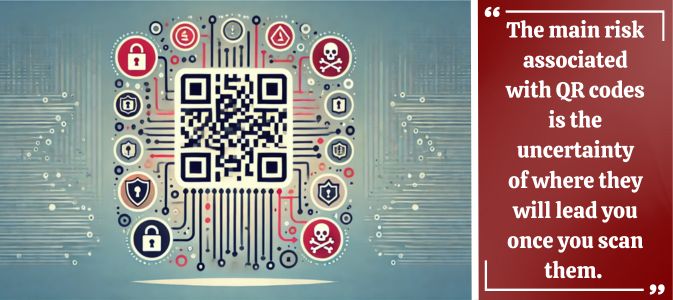QR Codes Can Cut Like a Knife

A sharp knife is not inherently bad. In fact, most of us use one every day and appreciate its utility and ability to make preparing our daily meals easier. There are hundreds of uses for a sharp knife, and they all enhance our quality of life every day.
A sharp knife can also be a weapon for inflicting significant harm. However, we recognize the responsibility for its usage lies solely with the individual wielding it. The knife is an inanimate object crafted from wood and steel and has no influence on its use.
While knives have the potential for malicious use, we would never consider eliminating them from our society. They are helpful tools that improve our lives. Instead, we focus on knife safety and educating users on protecting themselves and others while using this tool.
Quick Response or QR codes are two-dimensional barcodes that store information in a matrix of black and white squares. They were initially developed in Japan in the 1990s to track parts in automotive manufacturing. Today, QR codes are used for website links, contact information, social media profiles, mobile payments, and event ticketing.
As beneficial as QR codes have been in improving our daily lives, they can also be used to facilitate significant harm. Just like a knife!
One of the most significant risks associated with QR codes is the potential for malware and phishing attacks. Malicious actors can create QR codes that, when scanned, redirect users to websites containing malicious software or phishing scams. This software can steal personal information, such as passwords, credit card details, and bank account information.
QR codes can also be used for scams and fraud. For example, a QR code may lead users to a fake website offering great deals or free products, but the site is a scam aimed at collecting personal information or stealing money. Another scam involves QR codes redirecting users to websites charging high fees for simple services, like downloading a mobile app, while potentially exposing users to malware and theft of personal information.
A recent example of a QR Code attack occurred in Redondo Beach, California, when fraudulent QR code stickers were placed on approximately 150 parking meters to scam people into providing payment information through a fake website. The fake QR codes directed users to a payment website not associated with the city’s parking system. The police department issued a warning and removed the stickers, advising anyone who might have been affected to contact them.

The main risk associated with QR codes is the uncertainty of where they will lead you once you scan them. With that in mind, here are some important QR code security tips:
- Be suspicious of QR codes placed in unexpected locations, such as public restrooms or parking lot light poles.
- Use a reputable QR code scanner app that will indicate the source address. Many scanner apps are designed to detect and warn users about malicious QR codes.
- Always double-check the website address before entering personal information or conducting a financial transaction.
- If you are suspicious of the source of a QR code, avoid scanning it. Just scanning the code may be enough to inflict damage to your digital device.
Your best defense is to be aware of the dangers and think critically. Don’t blindly scan QR codes without considering the potential risks. Ask yourself: Where did this QR code come from? What is it supposed to do? Is it from a reputable source?
A knife can prepare a meal or cause harm, just as a QR code can streamline access to information or be exploited for malicious purposes. The power lies not in the tool itself but in its use. Banning the use of either would be ridiculous. Instead, we should focus on educating ourselves about their safe and responsible use.
Share:
Disclosures
The material on this site was created for educational purposes. It is not intended to be and should not be treated as legal, tax, investment, accounting, or other professional advice.
Securities and Insurance Products:
NOT A DEPOSIT | NOT FDIC INSURED | NOT BANK GUARANTEED | NOT INSURED BY ANY FEDERAL GOVERNMENT AGENCY | MAY LOSE VALUE
